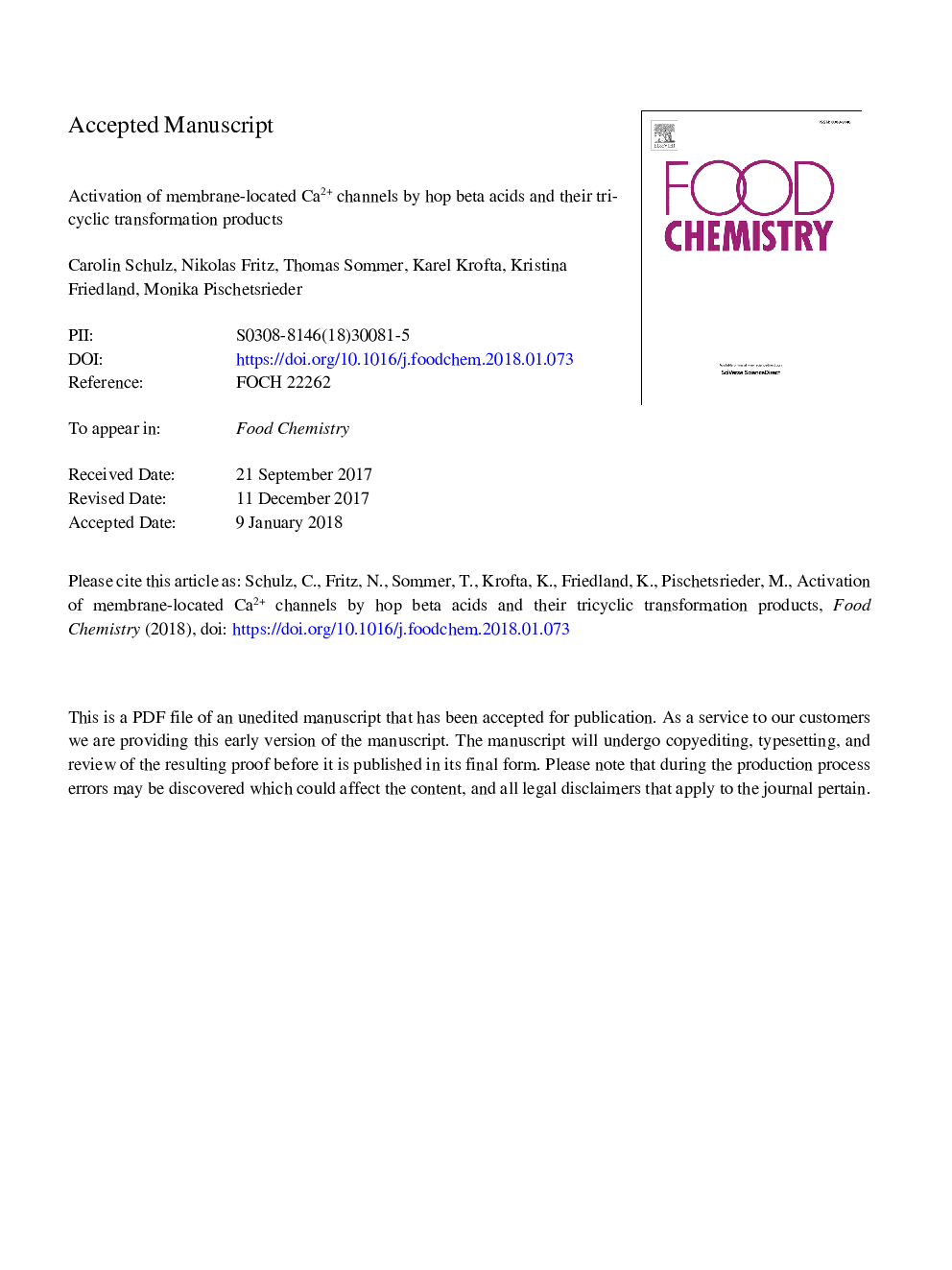| Article ID | Journal | Published Year | Pages | File Type |
|---|---|---|---|---|
| 7585702 | Food Chemistry | 2018 | 40 Pages |
Abstract
Beta-bitter acids of hops (lupulones) revealed sedative and antidepressant-like effects in animal studies. Transformation of β-acids during beer brewing leads to the formation of tricyclic transformation products, which have a close structural analogy to hyperforin. The latter compound is responsible for the antidepressant activity of St. John's wort by activation of TRPC6 cation channels in neuronal-like cells leading to Ca2+ influx. In this study, nortricyclolupones, dehydrotricyclolupones, and tricyclolupones were isolated from a wort-boiling model and their structures were elucidated by UHPLC-DAD, UHPLC-ESIâ-MS/MS and 1D/2D-NMR spectroscopy. Beta-bitter acids and their transformation products induced Ca2+ influx in PC12 cells to the same extent as hyperforin. Application of a Ca2+-free environment abolished the Ca2+ elevation, indicating that the increase is mediated by influx across the plasma membrane. Thus, activation of neuronal-like Ca2+-channels by lupulones and tricyclolupones represent a novel mechanism contributing to the antidepressant activity of hops.
Related Topics
Physical Sciences and Engineering
Chemistry
Analytical Chemistry
Authors
Carolin Schulz, Nikolas Fritz, Thomas Sommer, Karel Krofta, Kristina Friedland, Monika Pischetsrieder,
